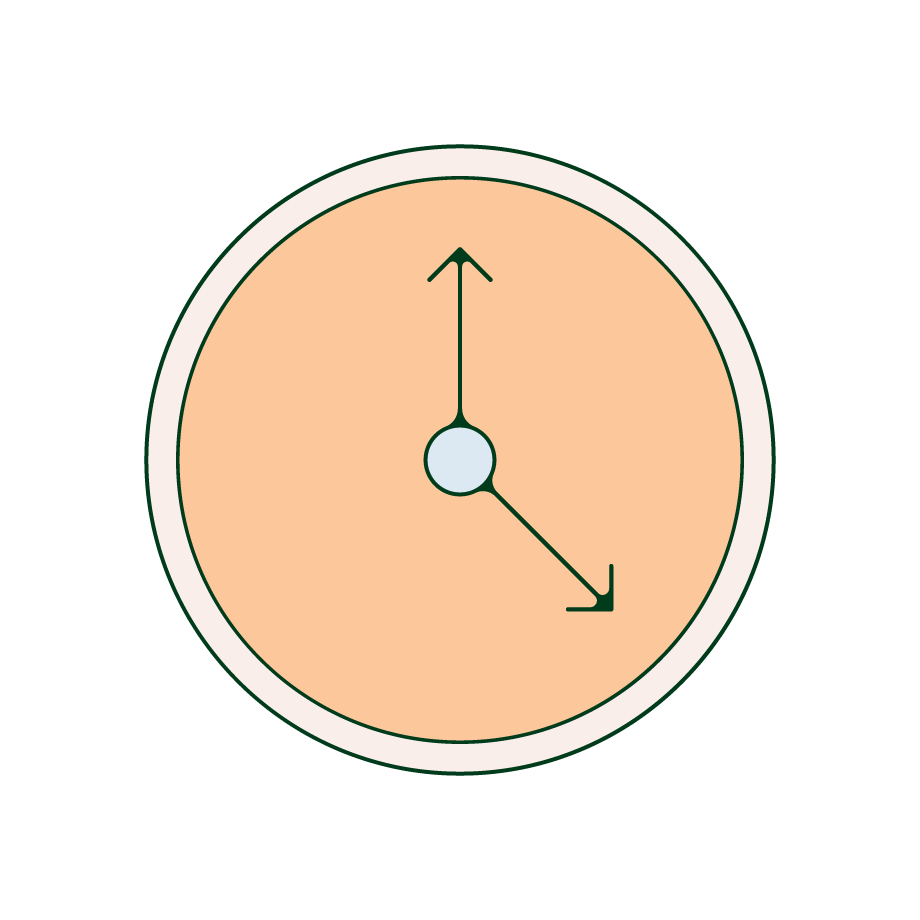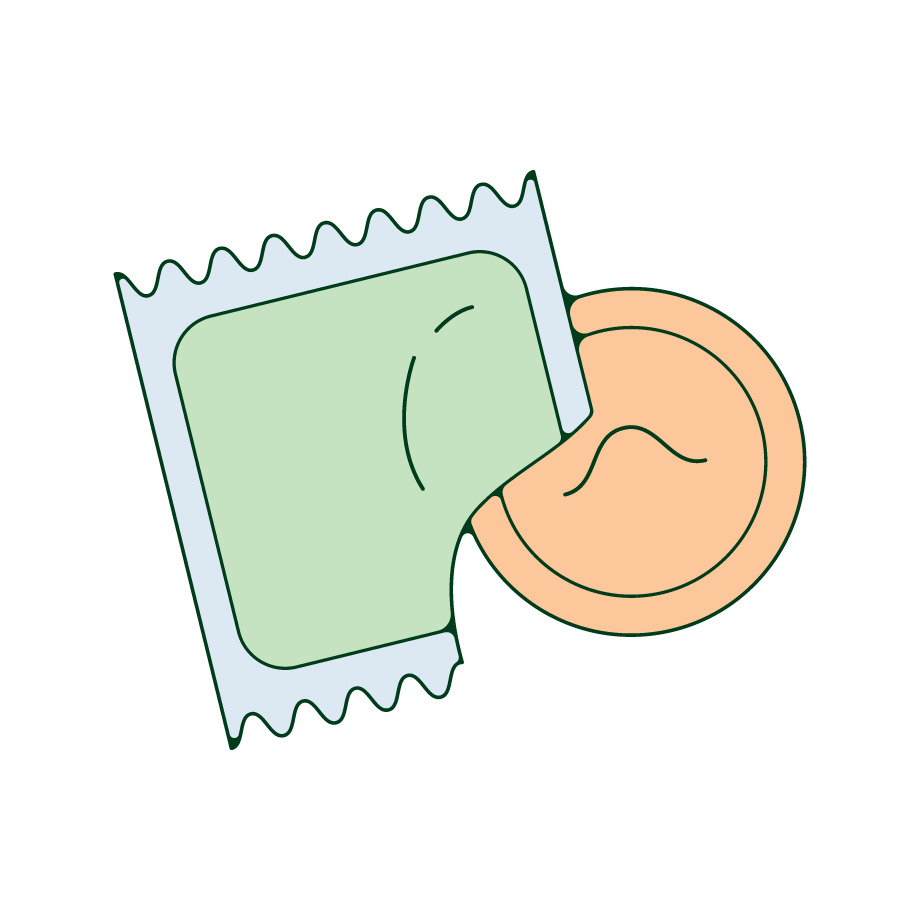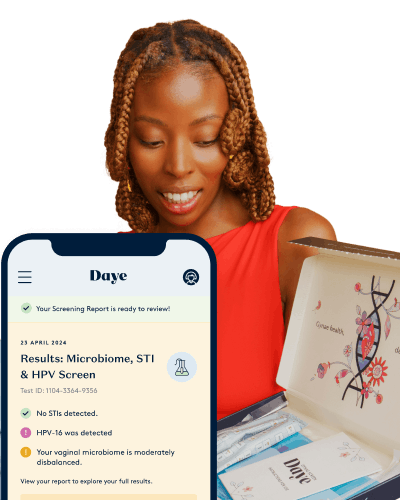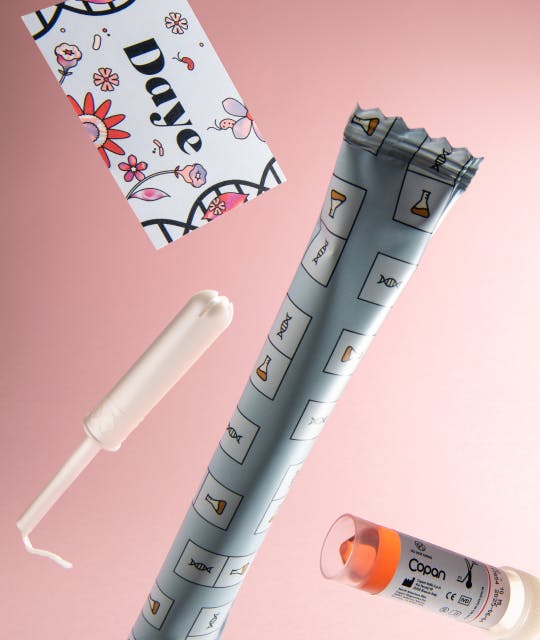Table of contents
1. What is Emergency Contraception?
2. What Are Your Emergency Contraception Options?
3. How Quickly Should You Take Emergency Contraception?
4. How Effective is Emergency Contraception?
5. Where Can You Get Emergency Contraception?
6. What Are the Side Effects of Emergency Contraception?
7. What Should You Do After Taking Emergency Contraception?
8. What’s the best way to be prepared for the future?
9. Some parting thoughts…
Written by Izzie Price
Medically reviewed by Sarah Montagu (RN DFSRH, BSc)
Illustrated by Maria Papazova
I’ve used emergency contraception (EC) just once, years ago – and as I dashed to my local Boots for the morning-after pill, I was brimming over with anxiety and confusion.
My experience of the actual EC was fine; but I remember how befuddled and nervous I felt about the process. I was going to a wedding later that day, and I remember hesitantly asking a doctor, ‘Can I…drink after I’ve taken the morning-after pill?’. She assured me I could, so long as I didn’t get so wasted that I threw it all up; but I just felt like I was groping around in the dark. I was utterly out of my depth.
That’s why we, here at Daye, are committed to increasing knowledge and awareness around all things EC. We want you to know your options. We want you to be informed on issues like safety, side-effects and any follow-up steps. Most of all, we want you to be brimming over with nothing but confidence when you walk into your local pharmacy or sexual health centre and ask for EC – because it’s your right.
What is Emergency Contraception?
“EC is most commonly used to refer to ‘the morning-after pill’, or the emergency contraception pill,” says Dr. Sarah Welsh, Gynaecology Expert and HANX Co-Founder. “It’s used to prevent unplanned pregnancy after unprotected sex, including circumstances where no contraception was used, sexual assault or when contraception may have failed.”
Carolina Goncalves is a Superindendent Pharmacist at Pharmica. “The active ingredients in EC work by inhibiting or delaying ovulation, which prevents the release of an egg from the ovary,” she explains. “They can also thicken the cervical mucus, making it harder for sperm to reach the uterus and fertilise an egg. Additionally, these active ingredients can change the uterine lining, making it thinner to prevent a fertilised egg from implanting.
“These mechanisms are most effective when the medication is taken soon after unprotected intercourse, as it is critical to act before the egg is released or fertilised,” Goncalves continues. “As time progresses, the chances of ovulation and fertilisation increase, reducing the effectiveness of EC. Therefore, prompt administration maximises its ability to prevent pregnancy.”
What Are Your Emergency Contraception Options?

“Two different types of EC are available in the UK,” says Welsh. “The over-the-counter type, known as the morning-after pill, is the most commonly known, with [two main] options”:
- Levonorgestrel pills (e.g. Levonelle)
- Ulipristal acetate pills (e.g. EllaOne)
“The medication you are prescribed [more on prescriptions below] will depend on various factors, including how much time has passed since you had unprotected sex, your BMI, any medications you’re on, or frequency of use,” Welsh explains. “In the UK, EllaOne is generally recommended as first choice – if it’s within five days of unprotected sex and there are no contraindications – due to its effectiveness” (more on which below).
“The other option is an intrauterine device (IUD), otherwise known as the copper coil,” Welsh continues. The IUD, as it happens, is the most effective EC option – “with a failure rate of less than 1%,” as Welsh explains.
“The IUD is often recommended for contraception if you’re also looking for ongoing contraception,” says Welsh. “Whilst it has several advantages, it does require physical insertion which is far more invasive than taking the morning-after pill and also requires a visit to your healthcare provider, which might not be as immediately accessible as over-the-counter pills.”
How Quickly Should You Take Emergency Contraception?

- Levonorgestrol: “The Levonorgestrel-based morning after pills should be taken up to 72 hours (3 days) after sexual intercourse,” says Goncalves. “This time frame is when Levonorgestrel is most effective in preventing and delaying ovulation. Any later than 72 hours, its effectiveness decreases.”
- Ulipristal acetate (EllaOne): “EllaOne can be taken up to five days after unprotected sex,” Goncalves explains. “[Its active ingredient, ulipristal acetate] blocks progesterone receptors, preventing the release of an egg. This extended window of effectiveness makes EllaOne a reliable option for EC even up to 120 hours after intercourse.”
- Copper IUD: We’ll leave this one to Welsh, as the stat speaks for itself – “If inserted within five days of unprotected sex, it is over 99% effective,” she says.
On which note…
How Effective is Emergency Contraception?

Well, the copper IUD is the most effective – that staggering 99+% effective stat speaks for itself. But Welsh helps us take a deeper dive into the effectiveness of the other two options, providing some more incredibly useful stats that should arm you with all the efficacy-related knowledge you need:
Levonorgestrel pills (specifically Levonelle):
- 0-24 hours after unprotected sex: approximately 95% effective
- [25]-48 hours: approximately 85% effective
- [49]-72 hours: approximately 58% effective
“If taken within 72 hours, Levonorgestrel [again, Levonelle specifically] prevents roughly around 84% of expected pregnancies,” adds Welsh.
EllaOne (Ulipristal acetate):
“If taken within 120 hours, Ulipristal acetate prevents about 98% of expected pregnancies,” Welsh concludes.
Where Can You Get Emergency Contraception?
“You can get hold of the morning-after pill in major high-street pharmacists, sexual health clinics, at your GP and online via digital pharmacies,” says Welsh. “As the copper IUD must be physically inserted, this must take place at a sexual health clinic or your local GP.
“When accessing emergency contraception, either in person or online, you will be asked a series of questions to enable the prescribing pharmacist to determine the right EC that’s safe and suitable for you,” Welsh goes on. “These [can] include if there is any chance that you’re pregnant and the date of your last period.”
What Are the Side Effects of Emergency Contraception?

“With the IUDs, side effects can include the following,” says Janet Choi, double-board certified reproductive endocrinologist and Chief Medical Officer of Progyny:
- Mild cramping (post-insertion)
- Spotting
- Very rarely: Infections or uterine perforation
Welsh points out: “Some people report that the insertion of the copper IUD is very painful, so it may be a good idea to prepare by taking pain relief at home, such as paracetamol or ibuprofen, before your appointment. If you find the pain difficult to manage during your appointment, speak to your GP or nurse as they may be able to help with additional pain relief” – and it’s important to note that, if you find the procedure painful and want to stop it, all you have to do is ask. The clinician cannot proceed if the patient has asked them to stop.
Goncalves, meanwhile, adds that “IUDs are not suitable for those with uterine abnormalities or pelvic infections, which is why it is vital to speak with your GP or doctor to ascertain suitability.”
Choi goes on to list common possible side-effects of Levonorgestrel and EllaOne as including:
Choi warns: “EC pills don’t protect against STIs and may interact with certain medications” – in the case of EllaOne, for example, Goncalves mentions that it “may reduce in effectiveness if it is taken with certain other medications such as St John’s Wort”.
Choi also adds: “Because Ulipristal [acetate] works by interfering with ovulation and progesterone receptors, progestin-containing contraceptives should not be used for at least five days after taking it. Condoms and/or abstinence is advised.”
What Should You Do After Taking Emergency Contraception?

“If you have had unprotected sex or condom failure, it’s really important to ensure you take a STI test swiftly,” says Welsh. “These are available for free at your local GP, sexual health clinic or via online services such as SH:24” – or, indeed, via Daye.
Choi, meanwhile, adds that you should “take a pregnancy test if your period is late” and “discuss ongoing contraception with a healthcare provider.”
What’s the best way to be prepared for the future?
“There are various options to be able to access [the morning-after pill], via either your GP or private pharmacies, to keep on hand just in case you need it in the future,” says Welsh. “This can be especially useful if you are planning on travelling and do not speak the local language, are visiting a destination where EC and sexual wellness is taboo, or accessing sexual health services/pharmacies in a timely manner is tricky.”
Some parting thoughts…
“There’s a huge amount of stigma around EC and misconceptions abound,” says Welsh. “I have had patients ask if the morning-after pill causes an abortion (it doesn’t, it prevents possible pregnancy, rather than ending an existing one) and if taking EC means you’re promiscuous (it means you’re taking responsible steps to advocate for your health” – plus, if you need to take EC more than once in the same menstrual cycle, that’s also ok.
“There is also a great deal of discussion around the possibility that EC is less effective if your weight is over a certain BMI, resulting in confusion,” Welsh adds – and she’s right. We’d suggest following the FSRH guidance, which indicates that, if you weigh more than 70kg or have a BMI >26, it’s possible (emphasis here on ‘possible’) that 1.5mg of Levonorgestrel (the typical standard dose) may be less effective. In this case, the IUD may be your best option; followed by EllaOne. If these options aren’t available, a double dose of Levonorgestrel may be recommended; but it’s crucial to check this with your healthcare provider first, not least because evidence to support the efficacy of a double dose is weak.
Key Takeaways 💡
- Emergency contraception (EC) prevents pregnancy after unprotected sex (not an abortion pill)
- Three options available: Levonelle, EllaOne, and copper IUD
- Must act fast: Effectiveness decreases with time (best within 3-5 days depending on type)
- Most effective option is the copper IUD (99% effective)
- Can be obtained from pharmacies, sexual health clinics, or GPs
If you need more support with EC, you can book a consultation with one of our nurses.
Worried about STIs?
As many as 70% of female STIs are asymptomatic, making proactive screening essential.

Relevant Products







